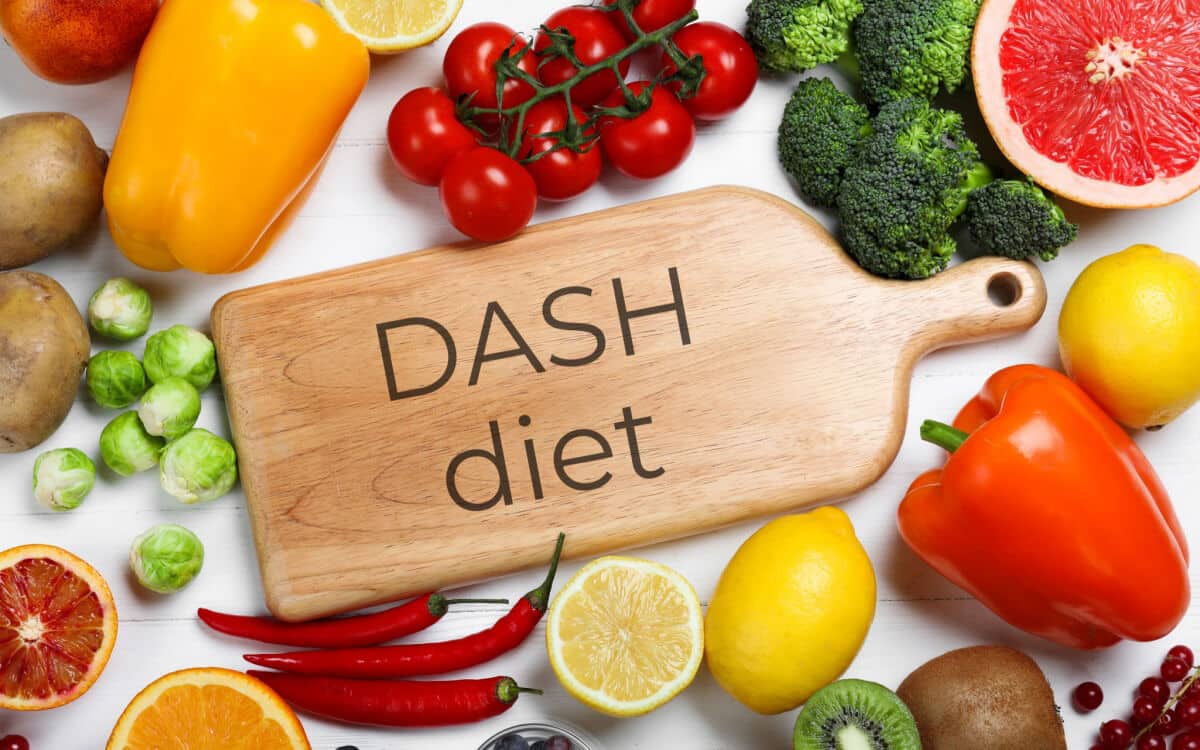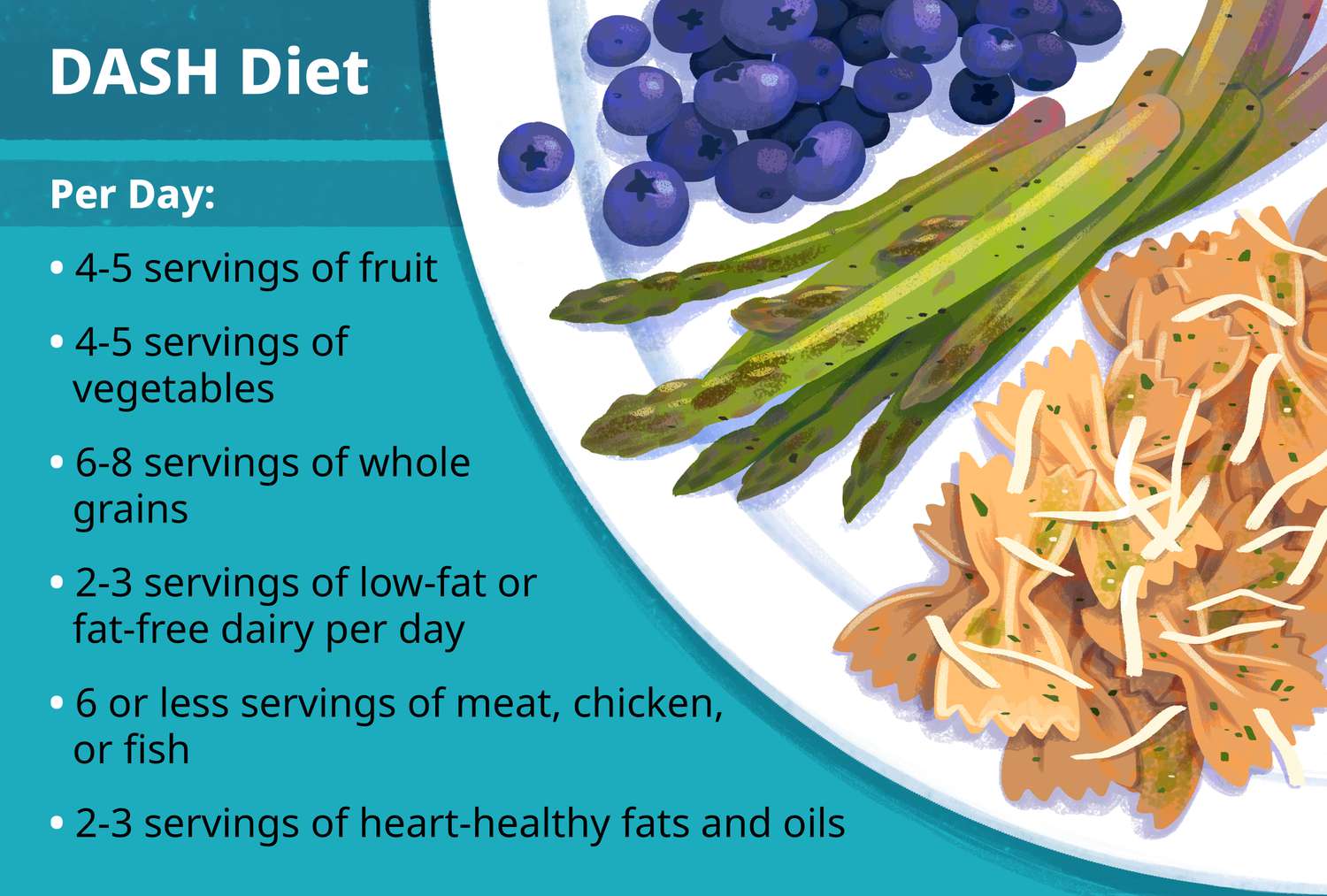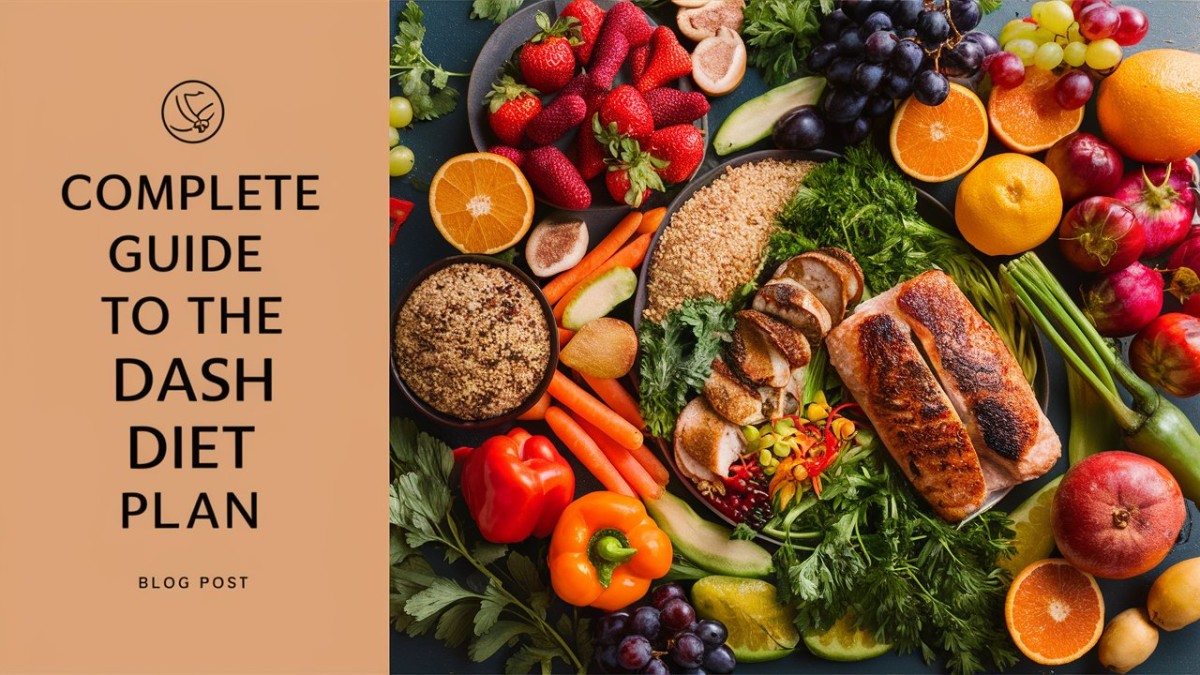DASH diet! Is there any diet called the DASH diet?
Yes, of course. A DASH diet is key to reducing blood pressure.
But how?
We are here to explain everything regarding the DASH diet,
🔹What is a DASH diet?
🔹For whom DASH diet is for?
🔹What foods are included & avoided in a DASH diet?
🔹What are the benefits of following a DASH diet?
What is a DASH diet?
DASH diet stands for The Dietary Approaches to Stop Hypertension. It is a diet plan, especially for people with high blood pressure, highly recommended by health organizations such as the American Heart Association and the National Institutes of Health.
You might be thinking only people with high blood pressure should follow the DASH diet, no, along with reducing blood pressure, it can promote the overall health of people so anyone can follow the DASH diet. So the main focus of the “DASH diet is to include foods that are low in sodium and saturated fats, but the diet should contain fresh fruits and vegetables along with whole grains and low-fat dairy products.”
Who should follow the DASH diet?
 While the DASH diet is best suitable for people with high blood pressure( As the diet is a rich source of potassium, magnesium, and calcium, which are known to help control blood pressure), it can also be followed by people with diabetes, those who want to lose weight, to reduce the risk of heart problems, and people who want to have a healthy diet. It can also be suitable for older people who have chronic kidney disease or osteoporosis.
While the DASH diet is best suitable for people with high blood pressure( As the diet is a rich source of potassium, magnesium, and calcium, which are known to help control blood pressure), it can also be followed by people with diabetes, those who want to lose weight, to reduce the risk of heart problems, and people who want to have a healthy diet. It can also be suitable for older people who have chronic kidney disease or osteoporosis.
What are the foods to be included and avoided in the DASH diet?
Food to include |
Foods |
Description |
Food to avoid |
Description |
|
Fresh fruits |
Apples, berries, oranges, bananas, melons, peaches |
Because they are high in vitamins, minerals, and fibers and low in calories |
Canned fruits in syrup |
They are high in added sugars that are unhealthy |
|
Vegetables |
Green leafy vegetables, carrots, bell peppers, broccoli, tomatoes |
As they are rich sources of potassium, magnesium, and fiber; low in sodium |
Pickled vegetables |
They are high in sodium which must be avoided to reduce the risk of chronic health problems |
|
Whole grains |
Brown rice, quinoa, whole wheat bread, oatmeal |
It is a good source of fiber, vitamins, and minerals; it is best helpful to manage blood sugar levels |
White bread, pastries, white rice |
Low in nutrients and fiber; often high in added sugars and refined carbohydrates |
|
Lean proteins |
Chicken, turkey, fish, beans, lentils |
Low in saturated fats; high in protein and essential nutrients |
Fatty meats, bacon, sausages |
High in saturated fats and calories |
|
Low-fat diary |
Skim milk, low-fat yogurt, low-fat cheese |
Provides calcium, vitamin D, and protein without excessive fat |
Full-fat dairy, cream, full-fat cheese |
High in saturated fats and calories |
|
Beverages |
Water, herbal tea, low-fat milk |
Hydrating and low in calories; low-fat milk provides essential nutrients |
Sugary drinks, soda, energy drinks |
High in added sugars and empty calories |
What are the benefits of a DASH diet?
Lowers Blood Pressure:
 DASH diet lowers blood pressure due to avoiding processed foods and getting rid of sodium (salt). It includes taking of micronutrients such as fruits and vegetables, meat, fish, whole grains low dairy products, etc. And try to eliminate sugars and beverages that affect blood pressure.
DASH diet lowers blood pressure due to avoiding processed foods and getting rid of sodium (salt). It includes taking of micronutrients such as fruits and vegetables, meat, fish, whole grains low dairy products, etc. And try to eliminate sugars and beverages that affect blood pressure.
Reduces Risk of Heart Disease:
Though the DASH diet reduces blood pressure it also lowers cholesterol and LDL(low-density lipoprotein) or the bad cholesterol, thereby it reduces the risk of heart diseases promoting a healthy heart.
Supports Weight Loss:
Focusing on fresh fruits and vegetables, protein, whole grains, and fiber-rich foods and eliminating processed and sodium foods helps in major weight loss, it reduces body fat.
Helps to manage blood sugar levels:
DASH diet is best helpful in improving insulin sensitivity thereby reducing the risk of type-2 diabetes and managing the blood sugar levels in diabetes patients.
Reduces risk of cancers:
Are you thinking about how it helps to reduce the risk of cancer, so yes as you include whole nutritious foods in your diet routine, that best helps to reduce the risk of cancer.
Improves bone health:
DASH diet contains foods that are rich in calcium that are necessary to improve bone health and reduce the risk of osteoporosis.
Improves kidney functioning:
By controlling the blood pressure due to the reduced intake of sodium, it improves kidney functioning and reduces the risk of kidney problems in people who follow the DASH diet.
Conclusion:
This is everything you need to know about the DASH diet, so make sure you consult with your doctor before starting as it may or may not be suitable for your medical condition. And it can be highly beneficial for people who want to reduce their high blood pressure. Be consistent and have a life free from high blood pressure with a DASH diet.
